In the world of music production, there’s this widespread myth that you need a pristinely perfect home studio to create great music. Let me tell you, that’s just not the case. Creativity isn’t born from perfection; it’s sparked by passion and ingenuity. You don’t need to break the bank to start creating magic.
A lot of beginners I’ll talk to think they need to have the fanciest equipment right out of the gate. I say, start with what you can afford. A decent laptop, a solid pair of headphones, and a digital audio workstation (DAW) can get you pretty far. The beauty of starting modestly is that it forces you to innovate. You learn to work with limits and turn them into strengths.

Let’s talk essentials. Besides your DAW, think about investing in a good microphone and audio interface. These are the backbone of your setup that will support your creative process for a long time. Trust me, hitting record and listening to your first produced beats is a feeling like no other.
Creating professional-quality music in a humble setup is about knowing your tools inside out and pushing them to their limits. It’s like turning a small budget film into a blockbuster simply through clever techniques. The magic trick? Get familiar with online resources; there’s a ton of free material out there waiting for you to explore and learn from.
Here’s the thing about music: it’s about the vibe, the feeling it gives you, not how glossy your studio looks. Remember, many of the legends we listen to today started with much less. You too, can turn your little corner at home into a hit-making factory. The perfect studio is not about having more, it’s about doing more with what you have.
Related Posts:
- The Secret Weapon Every Guitarist Needs Now! Blue Cat’s Re-Guitar
- 8 Handy Microphone Techniques You’re Probably Not Using (Yet)
- Unlock Your Audio’s Full Potential With This Game-Changing Plugin! Scheps Omni Channel 2
The ‘Expensive Gear Equals Better Music’ Fallacy
There’s this big misconception floating around that splurging on expensive gear is your ticket to producing hit tracks. In reality, it ain’t the tools that make the music; it’s the musician. Experience, creativity, and a good understanding of sound are way more valuable than the price tag on your equipment.
Let’s set things straight with some real-life examples. Plenty of successful artists kickstarted their careers with basic setups. Take Billie Eilish, who recorded her groundbreaking album ‘When We All Fall Asleep, Where Do We Go?’ in her brother’s small bedroom with surprisingly minimal gear. It’s proof that talent and innovation win over fancy gadgets any day.
So, how do you make the most out of what you’ve got? Dive deep into learning what your current gear can do. Push its boundaries. Many online communities and forums are filled with tips and tricks from pros on tinkering with basic setups to get pro results.
Consider swapping out pricey gear for budget-friendly alternatives. There are countless affordable options for almost every musical tool you might need—from mics to monitors. Plus, software emulations often pack a punch comparable to their costly hardware counterparts.
The focus should be on mastering your technique and honing your craft. Embrace the process of skill-building over gear-collecting. Because at the end of the day, what truly matters is the sound and emotion you bring to your music—not the brand logos on your instruments. If you can jam out a killer track on basic gear, imagine what you can do down the road.
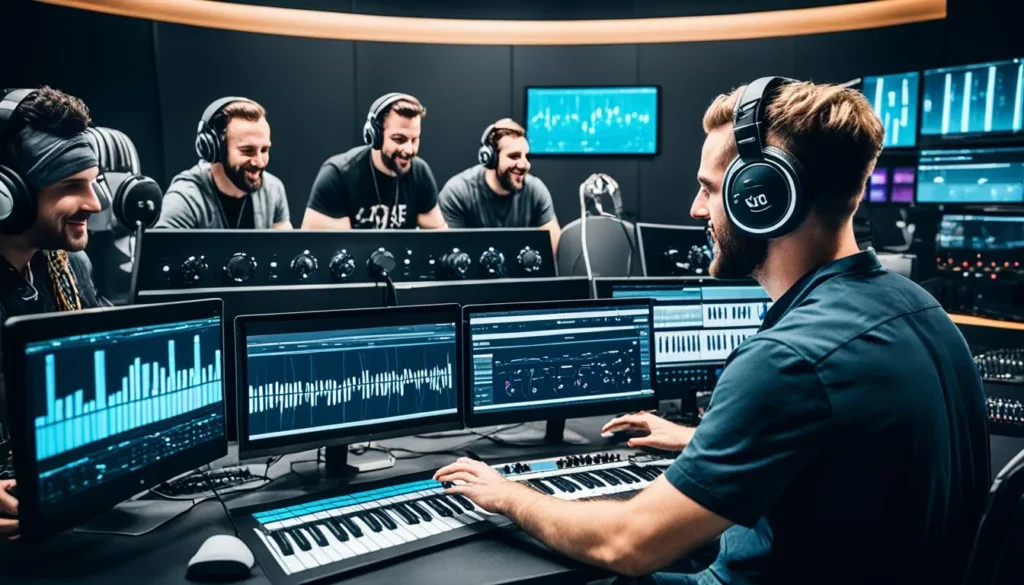
Related Posts:
- Making Music: The 6 Stages of Music Production
- Grammy-Winning Secrets Unlocked: Get Chris Lord-Alge’s Signature Sound for Less!
Sound Engineering: Not Just for Pros
There’s this notion that sound engineering is a mysterious art, reserved only for seasoned pros. But guess what—it’s becoming more accessible than ever. With so many tools and resources available right at your fingertips, stepping into the world of sound engineering has never been easier.
The beauty of today’s technology is that you don’t need to start out with high-end equipment. Many top-notch software programs can do much of the heavy lifting. Some DAWs come equipped with powerful built-in plugins that allow you to tweak your tracks until they sound just right.
Basic sound engineering techniques, like EQ settings and compression, are within anyone’s reach. There are loads of free tutorials on YouTube and platforms like Coursera and Skillshare, offering fantastic courses that cover everything from theory to practice.
Here’s a tip: start with the basics and don’t shy away from experimenting. Try out different things, see what works and what doesn’t. Over time, as you play around with settings, plugins, and effects, your skills will evolve almost without you noticing.
Learning sound engineering is about developing an ear for detail and, most importantly, cultivating your individual style. One of the greatest parts is that the internet is full of thriving communities eager to share knowledge, answer questions, and even offer critiques.
Don’t get discouraged if it feels daunting at first. Many amateurs have turned pro by leveraging free resources and putting in the hours. The key is to be persistent and open to learning. Before you know it, you’ll be mixing like a seasoned engineer—all done from the comfort of your own setup.
The Myth of Having ‘The Perfect Ear’
People often think they need some kind of supernatural hearing ability to produce music effectively. Let me assure you, that’s not true. Developing a keen ear for music is something that builds over time. It’s a skill, not an innate talent, and anyone can train themselves to hear music more critically and creatively.
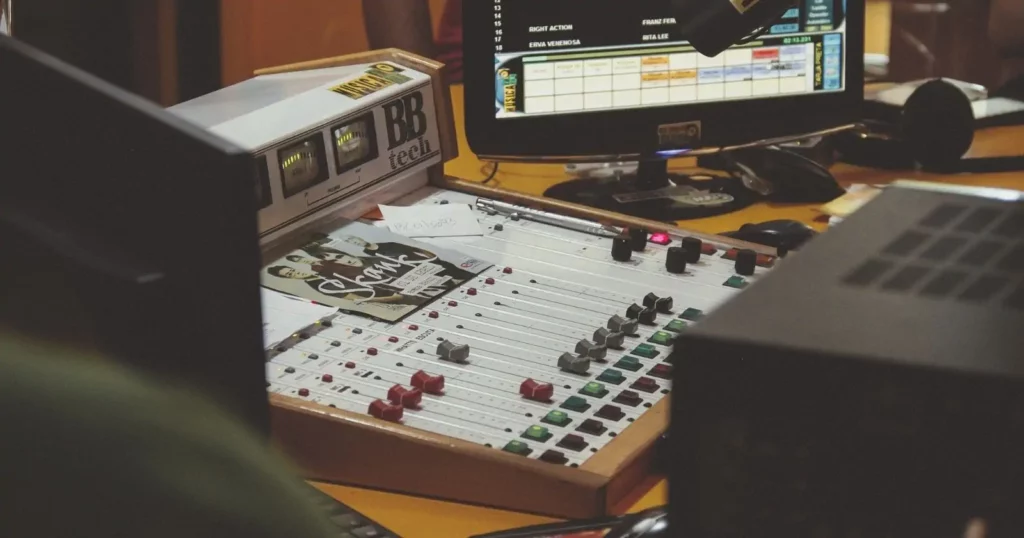
Start by immersing yourself in different music genres. This variety exposes you to diverse sounds and structures, training your ear subtly yet powerfully. Pay attention to how songs are mixed and the elements that stand out. Over time, you’ll start noticing the nuances in tone, pitch, and harmony.
Technology can be a great ally here. Apps and tools designed to aid with tuning and sound quality are widely available. Whether it’s a tuning app on your phone or a sophisticated plugin in your DAW, these tools can guide you as you learn to pick out different elements in your tracks. They act as your training wheels, helping you to find your balance when mixing and producing.
Interestingly, some producers find teaming up with a sound engineer beneficial. These experts can provide insights that are tough to catch on your own, kind of like a second set of ears. Collaborating with someone who has an experienced ear allows you to learn quicker and spot areas for improvement you might have missed.
Remember, the industry’s legends started at the same point. They didn’t necessarily have ‘perfect ears’ to begin with—they cultivated this skill through practice, patience, and passion. You can too! Just keep listening and working on your craft.
Creativity Restrictions in Digital Production
There’s a belief floating around that digital production boxes in creativity, but that couldn’t be more wrong. With the right mindset, digital tools open up endless avenues for innovation and expression.
Digital production offers a vast playground with sounds and effects that would be tough to replicate otherwise. Whether it’s crafting unique soundscapes or experimenting with electronic beats, the digital realm is your oyster. The key is to see these tools as part of your creative palette rather than constraints.
Don’t limit yourself to just presets and default settings. Spend time tweaking and adjusting to create sounds that are uniquely yours. Learn the ins and outs of your software, from manipulating samples to creating complex arrangements.
Mixing traditional instruments like guitar or piano with digital elements can lead to an entirely new genre of music that feels fresh and original. Consider what happens when you pair your natural voice with computer-generated harmonies. It’s all about blending the best of both worlds.
Creative risk-taking is the real game-changer. Experiment with layered sounds or unusual genres. Even if some attempts don’t hit the mark, each one is a step toward discovering what works for you. Digital tools shouldn’t confine your artistry; they should amplify it.
Music Production is an Individual Endeavor
There’s a stereotype that music production is a solitary quest, but that doesn’t have to be the case. Collaboration in music creation is one of the most powerful tools at your disposal. Partnering with other musicians, producers, or sound engineers can elevate your work to a whole new level.
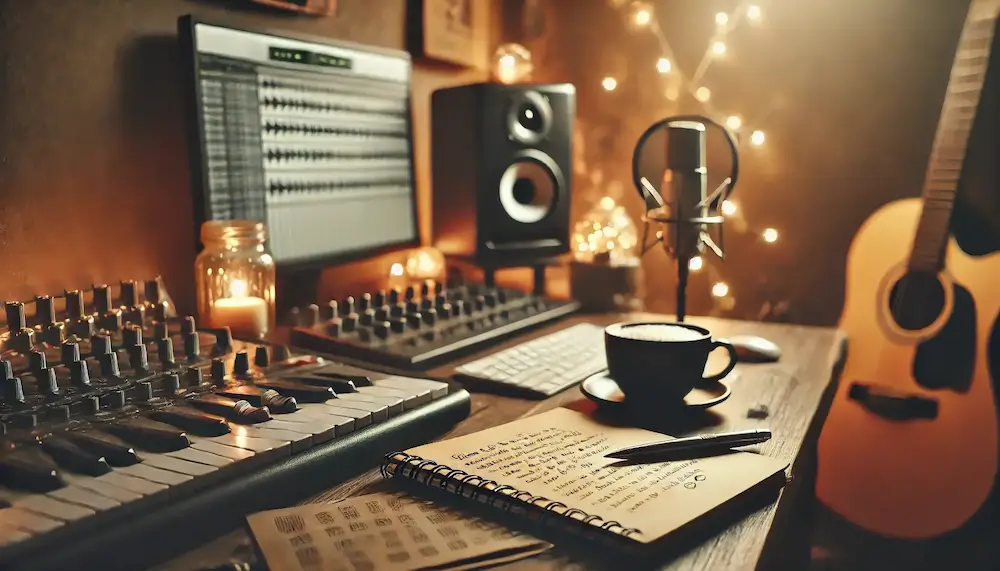
The music industry is filled with opportunities to connect and collaborate. Attend local gigs, join online music forums, or participate in workshops. These spaces are buzzing with potential partners who can bring fresh perspectives to your project. You never know who you might click with creatively.
Various community platforms, like SoundCloud or BandLab, offer amazing opportunities to share your work, get feedback, and connect with like-minded artists. They also provide a platform to showcase your own talent, potentially leading to collaborative ventures you hadn’t even imagined.
Take a cue from real-life stories of collaborative success. Daft Punk’s innovative sound, a result of countless collaborations over the years, shows the remarkable heights you can reach by working with others. Similar stories abound in the career arcs of artists and producers worldwide.
In the end, it’s about finding your tribe. Those you vibe with creatively will challenge you, inspire you, and push you beyond what you thought possible. The music you create together might just be the best you ever produce.
A University Degree is Required for Success
The idea that you must have a university degree to find success in music production is one of those myths that just won’t quit. Many of today’s celebrated producers are self-taught or have taken less conventional paths.
Look at the stories of some self-made musicians who’ve hit it big without a diploma. They’ve made a name for themselves through passion, persistence, and endless hours of trial and error. Billie Eilish, for instance, and her brother Finneas built their careers primarily by experimenting and learning on their own.
While formal education has its merits, consider alternative education pathways that have proven just as effective. Online courses, workshops, and tutorials offer flexible options to learn at your own pace. Sites like YouTube, Udemy, and Masterclass cater to different levels of expertise with content created by professionals.
By diving into real-world projects and leveraging online resources, you can build skills that are often more current and directly applicable than those taught in traditional academic settings. The hands-on experience gained from such activities is incredibly valuable.
The key here is to focus on cultivating skills that experience and practice teach. Adaptability, networking, and staying updated with the latest technology are crucial skills that will serve you well. After all, in the world of music production, it’s your work that speaks loudest, not a piece of paper from a university.
The Overnight Success Illusion
When it comes to music production, the myth of “overnight success” is one of the toughest to shake. Many get caught up in the fantasy of instant fame, but real success in this industry is more about the grind than the glitter.
Behind every chart-topping hit is a story of relentless persistence. Artists and producers spend years honing their craft, often working silently away from the spotlight. It’s these unsung hours of dedication that lay the groundwork for eventual breakthroughs.

Failures and setbacks are part of the journey. They’re not roadblocks but milestones that teach invaluable lessons. Embrace them, learn, and move forward. Every artist you admire has navigated their fair share of challenges before tasting success.
Take inspiration from the stories of those who started from scratch, built their skills meticulously, and eventually hit big. Understanding the hard work that goes into each “overnight success” story puts things into perspective, helping you set realistic expectations for your career.
In the end, patience and consistency are your best allies. Keep producing, learning, and improving. Stay committed to the craft, and over time, those small wins stack up. The journey may be long, but if you love what you do, the passion makes every step worthwhile.
Related Post:

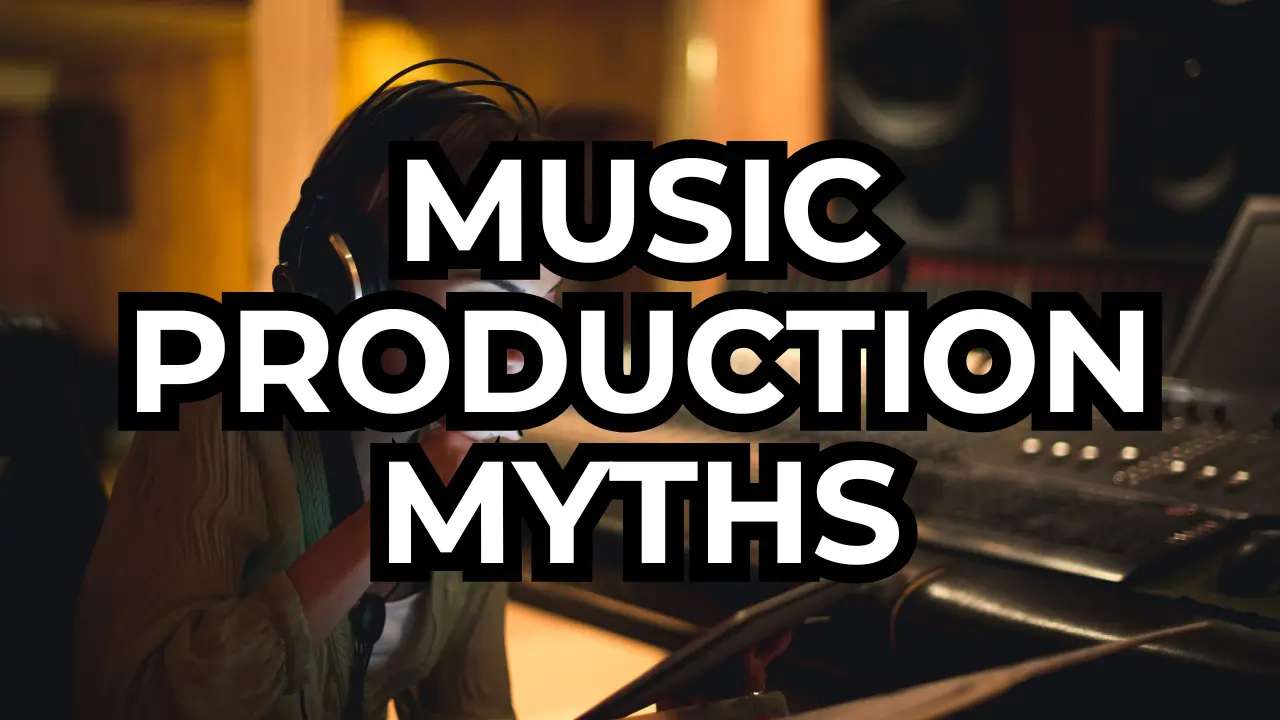
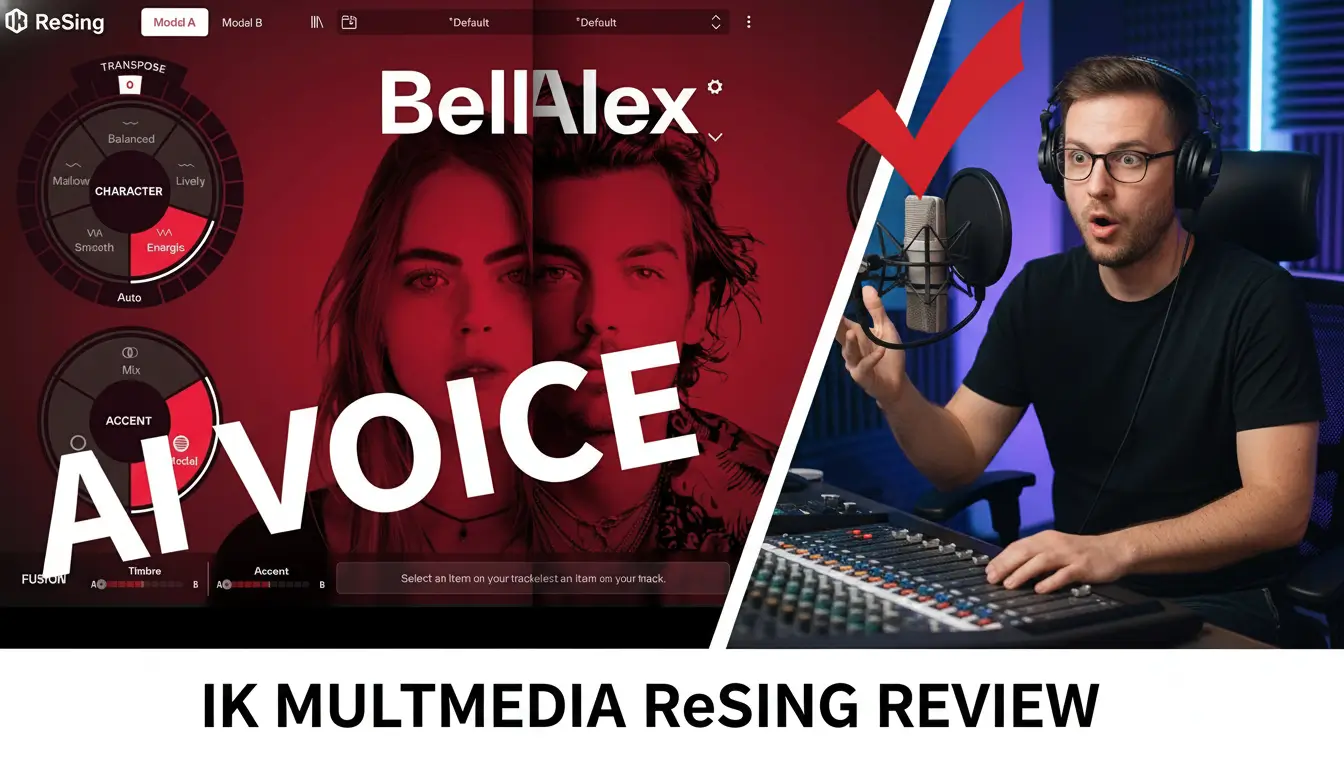

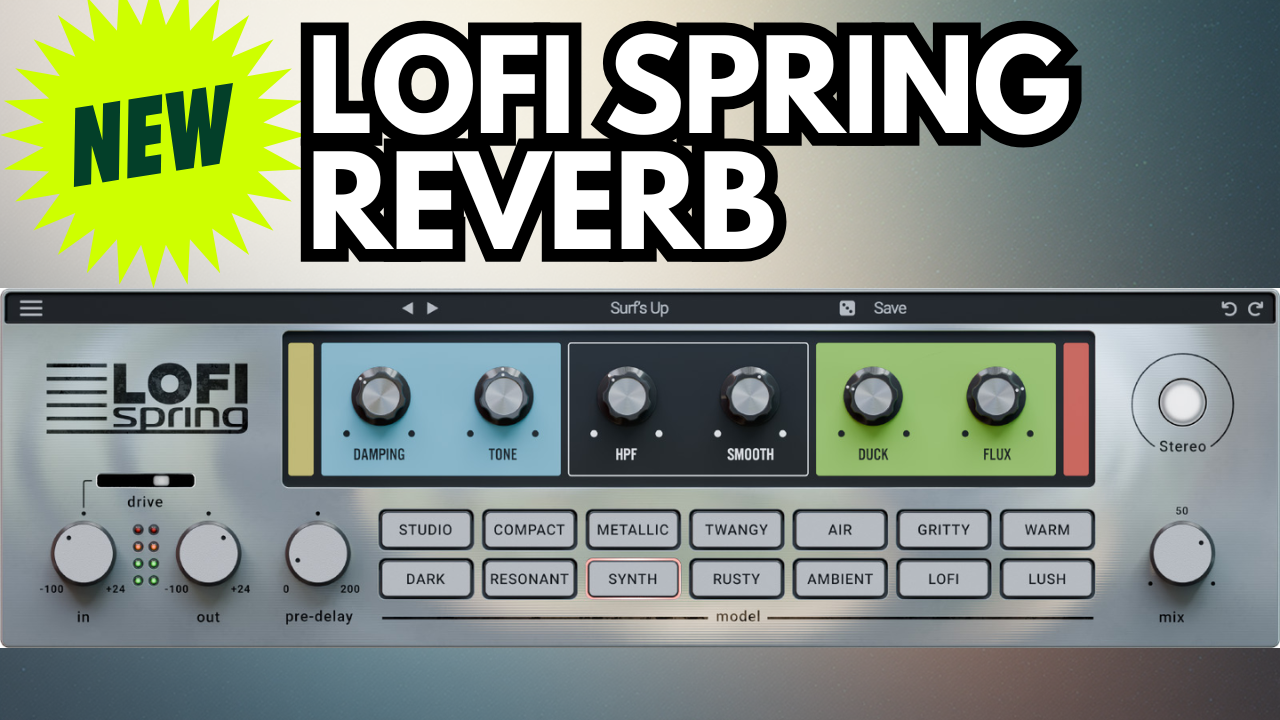
Leave a Reply